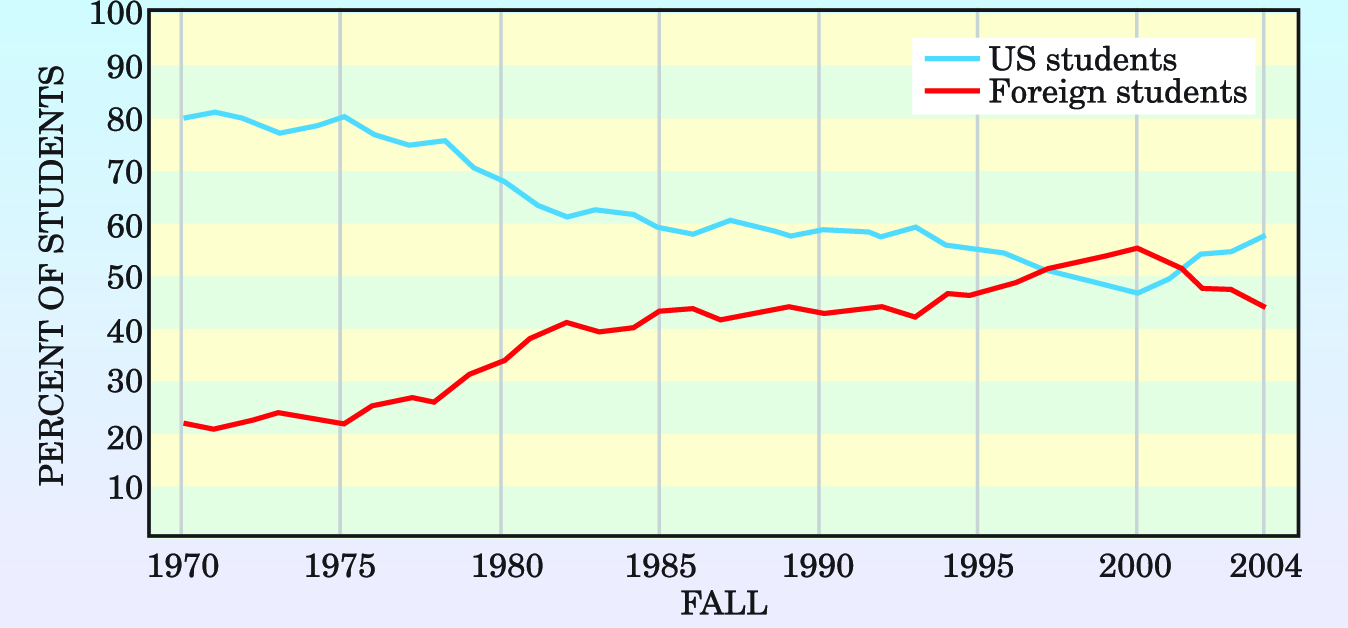Foreign Students Still Face Visa Hurdles in US
DOI: 10.1063/1.2405590
Visa problems among foreign students pursuing graduate physics studies in the US continue but have eased a bit in the past couple of years, according to a new report by the American Institute of Physics. In the fall of 2004, some 12% of admitted foreign students faced delays of at least six weeks or were denied entry to the US due to visa complications, down from 20% two years earlier.
In the fall of 2004, about half of PhD-granting departments and one-third of master’s departments had at least one no-show among their expected foreign students. The difficulty in entering the country varied with the type of institution students planned to attend. Compared with the fall of 2002, 37% fewer top-ranking and 21% fewer second-tier departments reported visa problems in 2004 among their incoming foreign students, while small PhD and master’s programs saw more modest drops of 7% and 11%, respectively. In total, first-year enrollment of foreign students in physics graduate programs in the fall of 2004 fell 3% since the fall of 2002, and 13% since 2000. In 2004, 63% of the foreign students whose entry into the US was delayed or denied were Chinese.
Changes in visa regulations following the 9/11 terrorist attacks undoubtedly played a part in reversing the 25-year upward trend in the percentage of physics graduate students in the US coming from other countries (see figure). But, the report says, rising numbers of US applicants, improvements in institutions in students’ home countries, and more aggressive competition for foreign students by other countries are also important factors in the turnaround. Perhaps most significant in the long run, the report says, is “the damage to the reputation of the US as a welcoming and desirable choice of destination about where to pursue higher academic studies in physics.”

First-Year Physics Graduate Students in US

These and other data are presented in Physics Students From Abroad: Monitoring the Continuing Impact of Visa Problems. The report may be downloaded from http://www.aip.org/statistics/trends/intltrends.html
More about the authors
Toni Feder, American Center for Physics, One Physics Ellipse, College Park, Maryland 20740-3842, US . tfeder@aip.org





